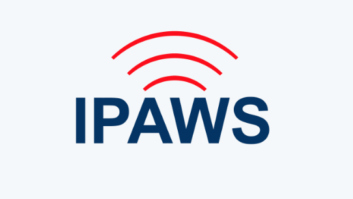Early Preparation for Renewal Cycle Required
Mar 1, 2011 1:00 AM, By Lee G. Petro
The license renewal process will begin for radio broadcasters in the District of Columbia, Maryland, Virginia and West Virginia on April 1, 2011. By the end of the year, radio station licensees in nine additional states will have submitted their renewal applications (FCC Form 303-S).
Over the years, the FCC has reduced the amount of information that licensees are required to submit with their applications. As a trade-off, though, the FCC requires licensees to make a series of certifications by which licensees confirm that they have complied with the FCC’s rules. The 2011 version of the renewal application has been updated to reflect changes in the rules since the last renewal cycle, so it is imperative that all broadcasters make sure they understand the certifications, and what information should be reviewed, prior to either certifying compliance with the FCC’s rules, or preparing complete explanations of the deficiencies.
If your station is filing a renewal application in 2011, you should start reviewing the renewal application as soon as possible, with special focus on the certification to be made therein. As with the previous renewal application form, a licensee must certify that it has placed the necessary information in its public file at the appropriate time during the license term. Other certifications relate to past civil or criminal adverse findings, FCC violations determined by the FCC relating to the licensee (e.g., notices of apparent liability, forfeiture orders), and compliance with the FCC’s alien ownership rules.
In addition, there are several new certifications that have been added to the renewal application reflecting the changes in the FCC’s rules since the last renewal cycle. In particular, the FCC will now require three certifications relating to the operation of the station, and require explanations, including applicable dates, if the station has been non-operational for more than 30 days, and/or for more than 12 months, at any time during the prior license term. As such, it is important that the licensee review its records and logs and determine if the station has been silent, and gather facts to describe the circumstances surrounding such non-operation if necessary.
Moreover, the FCC will now require the licensee to certify that the station’s “advertising sales agreements do not discriminate on the basis of race or ethnicity and that such agreements held by the licensee contain nondiscrimination clauses.” Even though the new rule was adopted as part of the FCC’s 2007 Diversity proceeding, which did not become effective until 2008, the licensee must certify compliance for the entire license term.
Finally, the renewal application includes certifications with respect to two broadcast ownership matters. First, the FCC will require a certification that it complies with the radio/newspaper cross-ownership rule, which presumes a public interest benefit if the radio/newspaper combination occurs in a community located in a Top 20 DMA, and presumes the negative public interest impact if the combination exists outside of a Top 20 DMA. The FCC also incorporated the “eligible entity” policies adopted in the 2007 Diversity proceeding which sought to encourage new entrants into the broadcast industry by permitting investment in qualifying entities above the 33 percent equity-debt plus standard otherwise applicable under the FCC’s ownership rules.
As the saying goes, the devil is in the details, and the otherwise short certifications contained in the renewal application require a thorough review of supporting information to confirm that your station can make an affirmative certification. The FCC was very active in the last renewal cycle imposing forfeitures for false and/or incomplete certifications, and it is in your best interest to begin this process as early as possible.
Clarification: The Commission recently clarified that the certification in the FCC renewal form regarding non-discrimination language in advertising sales contracts relates to the period from March 14, 2011, through the station’s renewal filing date.
Dateline
Radio stations located in the District of Columbia, Maryland, Virginia, and West Virginia must begin their pre-filing announcements with regard to their applications for renewal of license on April 1, 2011.
April 1 is the deadline for radio stations located in Delaware, Indiana, Kentucky, Pennsylvania, Tennessee and Texas to place EEO Reports in their public inspection files, and on their websites, if one exists.
Non-commercial radio stations in Texas must file their biennial ownership reports (FCC Form 323-E) by April 1.
A listing of each station’s most significant treatment of community issues must be placed in the station’s local public inspection file by April 10.
Petro is a member of Fletcher, Heald & Hildreth, PLC, Arlington, VA. E-mail: [email protected].












